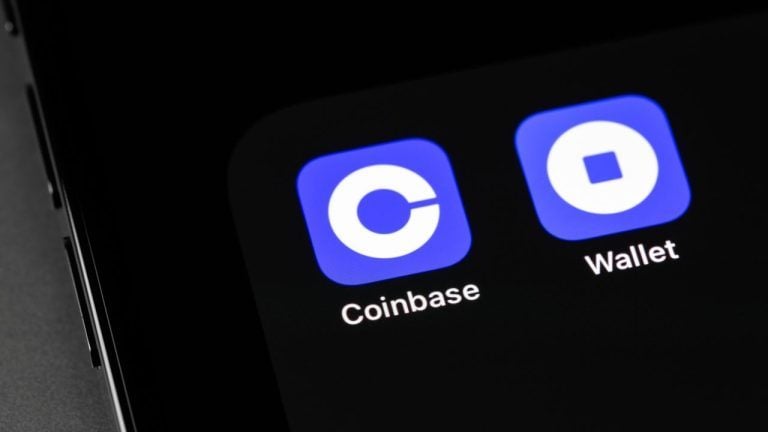 | Yes, you heard that right. For those of you that don't know there are 2 major different types of forks:
Hard forksThink of a hard fork like a significant permanent change to the rules. Because the change is not compatible with the old rules, everyone who participates in the network (like miners and users) needs to update their software to the new version. If some participants don't update, two separate chains can form, each following its own set of rules. One famous example is Bitcoin Cash ( I will talk about more about it later ). Soft forksOn the other hand, a soft fork is a more subtle change to the network's rules, designed to be backward-compatible. This means that participants who don't update their software can still participate in the network, but they may find that certain transactions are now considered invalid under the new rules. Over time, as more people adopt the new rules, the network typically coalesces back into a single chain. Now that you are familiar with the differences let me present you some of the notable forks and the story behind them. Bitcoin XTEmerged in 2015 as a hard fork proposal led by Mike Hearn and Gavin Andresen, two prominent figures in the Bitcoin community at the time. This represented the first serious attempt at a fork, creating a precedent for everything that came after. The primary goal of Bitcoin XT was to increase the block size limit from 1 MB to 8 MB, with provisions for further increases over time. The proposed block size increase aimed to allow for more transactions per block, thus increasing the overall capacity of the network. Hearn and Andresen believed that Bitcoin needed to solve the scaling quickly to accommodate growing user adoption and compete with traditional payment systems like Visa and PayPal. Many opposed the fork on the grounds that it was not an effective long-term solution for scalability. If you want to deep dive and get a better understanding in what the community sentiment was at that time I recommend to read a few threads on the bitcointalk forum : Why I support BIP101 (bitcointalk.org) Not Bitcoin XT (bitcointalk.org) Bitcoin XT - Officially #REKT (also goes for BIP101 fraud) (bitcointalk.org) Bitcoin XT never achieved the widespread adoption needed to become the dominant Bitcoin fork. It was eventually eclipsed by other proposals and technologies, such as Segregated Witness (SegWit) and the Lightning Network, both of which aim to improve scalability without increasing the block size in the same way. Mike Hearn famously declared Bitcoin a "failed experiment" in one of his blog posts The resolution of the Bitcoin experiment | by Mike Hearn | Mike’s blog (plan99.net) and left the project. He still makes occasional posts, that provide an interesting view on the space. Bitcoin CashThe creation of Bitcoin Cash was unsurprisingly a point of contention, as it split the Bitcoin community into two factions: those who wanted to keep the original 1MB block size (Bitcoin) and those who supported an increased block size (Bitcoin Cash). A segment of the community, led by figures like Roger Ver ( or better know as "Bitcoin Jesus" ) and mining hardware manufacturer Bitmain, advocated for increasing the block size to allow more transactions. When it became apparent that the broader Bitcoin community was not in favor of this change, a hard fork was executed, leading to the creation of Bitcoin Cash, which started with an 8MB block size limit. Unlike Bitcoin XT, Bitcoin Cash found widespread adoption, and according to CMC it's ranked 18 by marketcap sitting at a little over $4 billion dollars. Bitcoin SV, the fork of the forkIn November 2018, disagreements within the Bitcoin Cash community over proposed protocol changes led to another hard fork. The split produced two competing chains: Bitcoin Cash ABC, which retained the Bitcoin Cash name and ticker (BCH), and Bitcoin Cash SV, which later rebranded to just Bitcoin SV (BSV). The Bitcoin SV camp was led by Craig Wright and Calvin Ayre, who were opposed to the leadership of the Bitcoin Cash ABC faction, which included Roger Ver and Jihan Wu. Craig Wright's claims of being Satoshi Nakamoto also polarized opinions. A few of the technical reasons that sparked the fork are :
However, many point out that it was the ideological and personal differences that led to the fork, while the the technical reasons were used merely as a pretext. Anyhow, just like its father (or mother?), Bitcoin SV is still around, albeit not as successful as Bitcoin Cash, with CMC ranking it at number 59 with a market cap of almost $600 million. Tired of following yet? Here's a easier to follow graphic Litecoin??I never knew that litecoin was considered a fork. But according to Wikipedia : "Litecoin was a source code fork of the Bitcoin Core client, originally differing by having a decreased block generation time (2.5 minutes), increased maximum number of coins, different hashing algorithm (scrypt, instead of SHA-256*), faster difficulty retarget, and a slightly modified* GUI*".* Technically this makes it the first (or one of the first, the internet is full of different opinions, some stating NameCoin as being the first fork) fork of BTC. Frankly I didn't know what to believe at this point, as I don't really see neither of them as forks, nor does a big part of the community. I mean, by these standards even DOGE can be considered a fork. A few funny forksHere's a few forks I am sure you probably never heard of:
These are just a few of the many forks of bitcoin, according to forkdrop.io there are currently 105 forks of bitcoin, 45 of which have a blockchain capable of transacting. ConclusionAlright, so diving into the world of Bitcoin forks is kinda like going down a rabbit hole. It's super interesting to see how Bitcoin has evolved (or splintered) over time. From serious attempts to fix issues, like what we saw with Bitcoin XT and Bitcoin Cash, to the more, let's say, less serious forks like Bitcoin Pizza and CLAMS, it's a wild ride. Who knows what's left in store? Will we see more forks? You bet! Each fork has its own story, challenges, and most definitely, drama. They highlight the different camps in the Bitcoin world, showing how people are torn between sticking to the original ideology or trying something new or just gaining more control over bitcoin. Some forks have done really well, carving out their own space in the crypto world. Others, not so much—they've kind of faded into the background or serve as a "what not to do" example. So, whether you're into learning more about crypto, or farming MOONs, or just lurking the sub understanding these forks gives you the bigger picture of what's going on in crypto land, where the only thing you can expect is change. I fully recommend you to dive deeper into this rabbit hole, as I barely scrapped the surface of this gigantic iceberg. There's so much more to discuss about each one of these forks; each deserves its own Netflix series, haha. Have a good one! [link] [comments] |

You can get bonuses upto $100 FREE BONUS when you:
💰 Install these recommended apps:
💲 SocialGood - 100% Crypto Back on Everyday Shopping
💲 xPortal - The DeFi For The Next Billion
💲 CryptoTab Browser - Lightweight, fast, and ready to mine!
💰 Register on these recommended exchanges:
🟡 Binance🟡 Bitfinex🟡 Bitmart🟡 Bittrex🟡 Bitget
🟡 CoinEx🟡 Crypto.com🟡 Gate.io🟡 Huobi🟡 Kucoin.







Comments